Welcome to our guide on maximizing your range time with shot timers! Whether you're a beginner or an experienced shooter, shot timers can be a valuable tool to help you improve your accuracy and efficiency on the range. In this comprehensive review, we'll take a deep dive into the world of shot timers for shooting and provide you with a detailed overview of their benefits, features, and top picks for competitive shooting.
By the end of this guide, you'll have all the knowledge you need to make an informed decision on which shot timer is right for you, and how to use it to take your shooting skills to the next level.
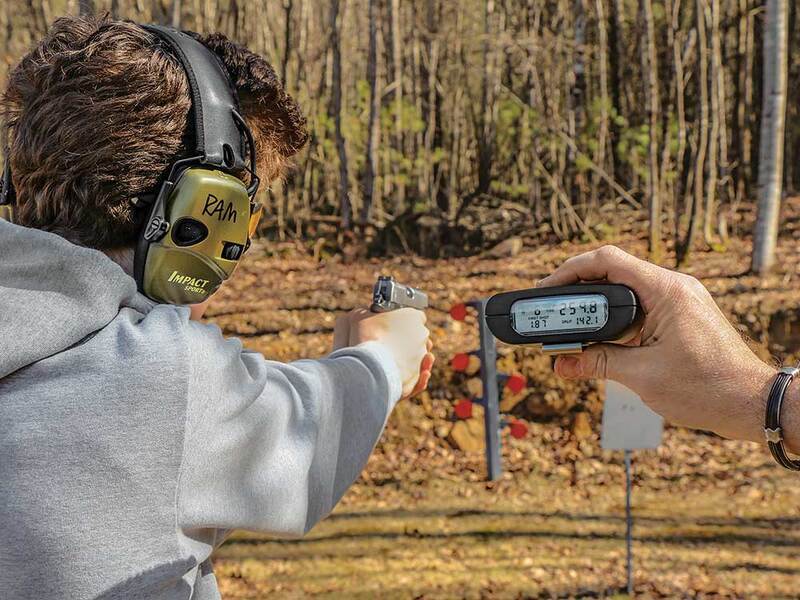

A shot timer is a sophisticated electronic instrument primarily employed in competitive shooting sports to gauge the duration taken by a shooter to execute a sequence of shots. This device is engineered to detect and record the sound of gunshots, enabling shooters and coaches to evaluate the pace and effectiveness of their shooting methods. Typically, the shot timer is equipped with a start button or buzzer to activate the timing process, and it precisely measures the time intervals between shots, ultimately determining the overall time for the shooting sequence.
Not only do shot timers facilitate monitoring a shooter's progress over time, but they also offer instant feedback on performance, enabling shooters to pinpoint areas for improvement and hone their skills. Data collected from shot timers can be utilized to conduct various drills, assess outcomes, and implement necessary modifications, ultimately boosting the shooter's speed, accuracy, and consistency.
Shot timers are extensively employed in events such as the International Practical Shooting Confederation (IPSC), United States Practical Shooting Association (USPSA), and International Defensive Pistol Association (IDPA) competitions. Additionally, they are used in training exercises for law enforcement and military personnel to enhance speed and accuracy in real-life situations.
A shot timer offers various benefits that can significantly enhance your shooting skills, with three primary advantages being:
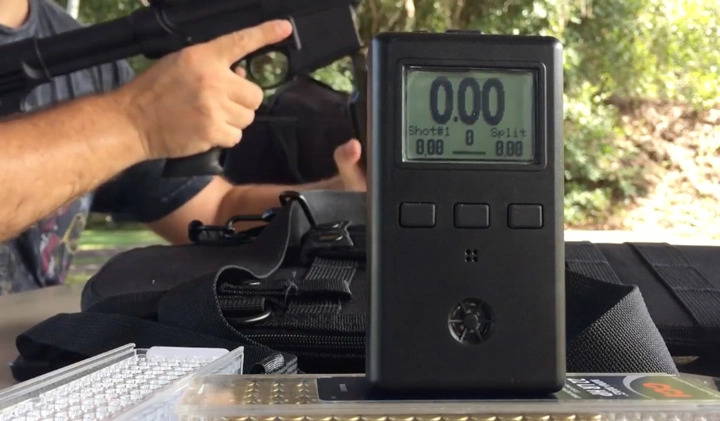
Keeping track of time and accuracy is crucial for shooters aiming to enhance their performance in various shooting disciplines. By effectively monitoring these two aspects, shooters can gain valuable insights into their progress, identify areas for improvement, and work towards achieving greater proficiency. Shot timers play a significant role in this process, as they enable shooters to accurately measure the time taken to complete a series of shots, while also indirectly highlighting the precision of their shooting.
When using shot timers during training sessions or competitions, shooters can better understand the relationship between the speed of their shots and the level of accuracy they can maintain. Striking a balance between these two factors is essential for optimal performance, as both aspects are critical in determining a shooter's overall success in various shooting scenarios.
The data gathered from shot timers can be used to analyze and adjust shooting techniques, ensuring that shooters maintain a consistent level of precision while working on increasing their speed. By continuously monitoring time and accuracy, shooters can develop a more profound awareness of their performance, enabling them to make informed decisions on how to refine their skills and achieve better results in the long run.
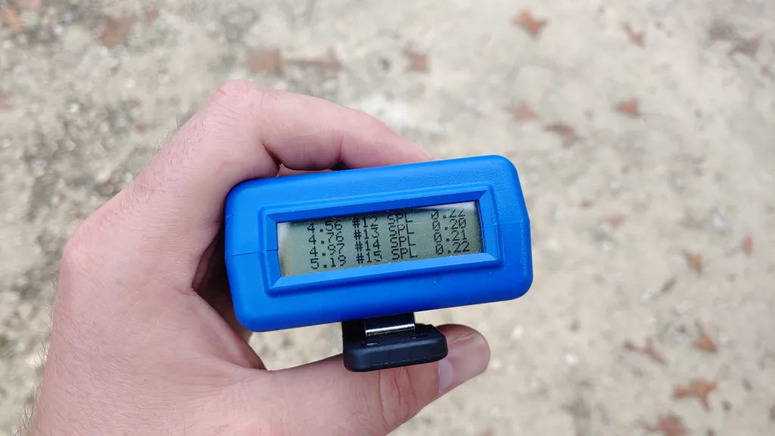
Utilizing shot timers in shooting practice offers the significant advantage of delivering immediate feedback on a shooter's performance. These devices precisely measure time intervals between shots and the total time required to complete a shooting sequence, providing real-time insights into a shooter's speed and efficiency. This instantaneous feedback enables shooters to pinpoint their strengths and weaknesses in shooting techniques, allowing them to make adjustments during training sessions or competitions.
This prompt assessment, facilitated by shot timers, empowers shooters to try out various techniques and strategies while quickly determining which approaches yield optimal results in terms of speed and accuracy. Furthermore, the instant feedback serves as a driving force, inspiring shooters to pursue continuous improvement and fostering a growth mindset. This real-time responsiveness is especially valuable for honing skills, as it enables shooters to learn from their mistakes and successes on the spot, ultimately expediting the learning process and supporting the development of more effective shooting techniques.
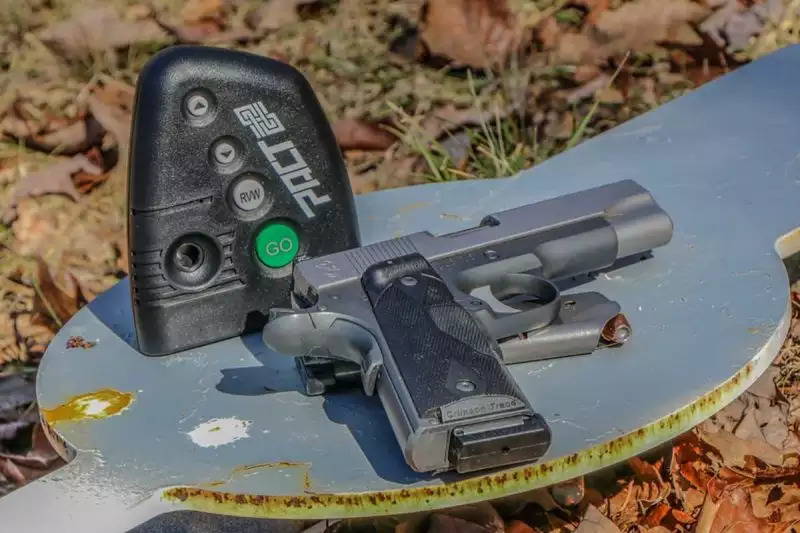
Shot timers play a pivotal role in identifying areas for improvement in a shooter's performance, enabling them to refine their skills and achieve better results. These devices accurately measure the time taken for each shot and the total duration of a shooting sequence, providing valuable data that can be analyzed to assess the shooter's speed and efficiency. By evaluating this information, shooters can gain insights into their strengths and weaknesses, helping them to pinpoint specific aspects of their technique that require further development.
The data collected by shot timers allows shooters to set measurable goals and track their progress in achieving these objectives. For instance, a shooter might aim to reduce the time taken to complete a specific shooting drill while maintaining a high level of accuracy. By using a shot timer to monitor their performance, they can objectively evaluate their progress and make necessary adjustments to their technique. This targeted approach to skill development ensures that shooters focus on the most critical aspects of their performance, ultimately leading to more significant improvements and overall success in various shooting disciplines.

When selecting the ideal shot timer for your needs, it's essential to consider several key features that can greatly impact your experience and overall satisfaction. These important factors include:
The display of a shot timer is an essential feature to consider, as it provides real-time feedback on the shooter's performance. A clear and easy-to-read display allows for quick and accurate assessment of the recorded times, enabling the shooter to make prompt adjustments to their technique. High-quality displays should be visible in various lighting conditions, including bright sunlight or low-light environments, to ensure optimal usability in diverse shooting situations.
The shot timer's sensitivity to gunfire sound is critical, as it directly impacts the device's ability to accurately record shot times. Adjustable sensitivity levels enable the timer to detect shots in various environments and from different firearms, ensuring consistent performance regardless of the shooting conditions. Additionally, a clear and audible start signal, such as a buzzer or beep, helps shooters to precisely synchronize their shooting with the timer.
When selecting a shot timer, consider its size and weight to ensure it's comfortable to use and easy to carry during shooting sessions. A compact and lightweight design allows for convenient storage and transport, making it more practical for regular use. Ergonomic design and user-friendly controls contribute to a more seamless experience, allowing shooters to focus on their performance rather than the device itself.
Shot timers are often subjected to harsh environments and rough handling, making durability a crucial factor to consider. High-quality shot timers should be built with robust materials and rugged construction, ensuring they can withstand the rigors of frequent use and resist damage from impacts or exposure to elements such as dust, moisture, and temperature fluctuations.
Long battery life is essential for a shot timer, as it ensures the device remains functional during extended shooting sessions and reduces the need for frequent battery replacements or recharging. Timers with energy-efficient features and low-power consumption modes help extend battery life, providing more reliable performance and minimizing downtime during critical training sessions or competitions.
Are you having fun reading with Dinosaurized? Here's a little gift for better shopping experience~
Enter this 15% Discount code: "GundiscussionD15" at Checkout now~
When evaluating the best shot timers on the market, it's essential to conduct a thorough review and comparison of their features, along with understanding the pros and cons of each model.

The Pocket Pro II is a lightweight and easy-to-use shot timer with a large display that offers multiple shot review options and an adjustable volume. However, its battery life is limited, and it lacks wireless connectivity, and its memory storage is limited compared to other models.
Pros:
Lightweight and easy-to-use
Large display with easy-to-read digits
Multiple shot review options
Adjustable volume
Cons:
Limited battery life
No wireless connectivity
Limited memory storage
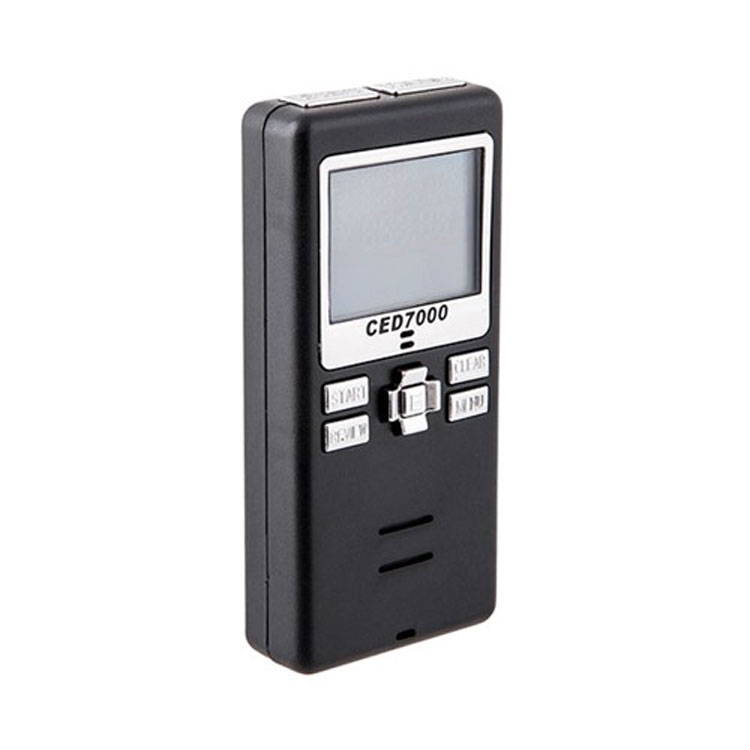
The CED7000 is a compact and durable shot timer with a high-quality display that has customizable settings. It has multiple modes and par time settings, wireless connectivity, and downloadable software. However, it has limited memory storage, a higher price point, and a smaller display than some other models.
Pros:
High-quality display with customizable settings
Multiple modes and par time settings
Wireless connectivity and downloadable software
Long battery life
Cons:
Higher price point
Smaller display

The PACT Club Timer III is a reliable and durable shot timer with a large display that offers multiple modes and par time settings, adjustable sensitivity for shot detection, and multiple review options and memory recall. However, its battery life is limited, and it's less portable than other models due to its bulkier design and lack of wireless connectivity.
Pros:
Durable and reliable design
Adjustable sensitivity for shot detection
Multiple modes and par time settings
Multiple review options and memory recal
Cons:
Bulky and less portable design
No wireless connectivity

Begin by familiarizing yourself with the device's functions and settings, ensuring it's configured to accurately detect shots and record time intervals. Set the timer's sensitivity level to accommodate the specific firearm and environment you'll be using, and adjust the start signal's volume and delay to suit your preferences. A properly configured shot timer will enable you to concentrate on your performance without any distractions.

Incorporate shot timers into your practice sessions by using them to measure your performance during various drills designed to enhance specific skills, such as speed, accuracy, and transitions between targets. By timing these exercises, you can establish baseline performance metrics, set measurable goals, and track your progress over time. Regularly using shot timers in your drills will help you develop a deeper understanding of your strengths and weaknesses, allowing you to focus your efforts on the most critical aspects of your shooting technique.

Review the data collected by the shot timer to identify patterns, areas for improvement, and progress toward your goals. Use this information to make informed decisions about which aspects of your technique require further refinement or practice. Adjustments may include altering your grip, stance, or trigger control, as well as modifying your training regimen to address specific skill gaps. By continually analyzing your performance and making data-driven adjustments, you can optimize your shooting technique, ultimately achieving higher levels of speed, accuracy, and consistency.
Are you having fun reading with Dinosaurized? Here's a little gift for better shopping experience~
Enter this 15% Discount code: "GundiscussionD15" at Checkout now~
To get the most out of your shot timer, it's essential to incorporate it into your regular training routine. This will allow you to track your progress over time and make targeted improvements to your technique and performance.
Shot timers can offer a wide range of benefits for shooters, including improved accuracy, speed, and consistency. To maximize these benefits, focus on setting measurable goals and tracking your progress over time.
If you encounter issues with your shot timer, such as missed shots or inaccurate readings, try troubleshooting the problem before giving up on the tool. This may involve adjusting the sensitivity or volume, changing the mode or settings, or switching to a different shot timer model.
To get the most out of your shot timer, try using it to simulate real-world scenarios, such as shooting from different positions or under time constraints. This will help you develop the skills and techniques you need to excel in real-world shooting situations.
When using a shot timer, it's important to practice with a purpose and set clear goals for your training sessions. This will help you stay focused and motivated, allowing you to make steady progress towards your shooting goals.
Yes, most shot timers are designed to work in both indoor and outdoor shooting environments. However, some models may have limitations in extreme weather conditions or certain lighting situations, so it's important to choose a model that's suitable for your specific shooting needs.
Shot timers are generally considered to be very accurate, with most models having a margin of error of less than 0.01 seconds. However, factors such as ambient noise, shooter technique, and the specific model of shot timer can affect the accuracy of the readings.
Shot timers can be used with most types of firearms, including pistols, rifles, and shotguns. However, some models may have limitations on the types of firearms they can be used with, so it's important to check the manufacturer's specifications before purchasing a shot timer.
Yes, shot timers are legal for use in most shooting competitions, including USPSA, IDPA, and IPSC matches. However, it's important to check the rules and regulations of each specific competition to ensure that shot timers are allowed.
In conclusion, shot timers offer numerous benefits to shooters. They allow for immediate feedback on accuracy, speed, and consistency, and can help identify areas for improvement. Shot timers can also simulate real-world shooting scenarios, providing valuable training opportunities. By using shot timers, shooters can track their progress, set goals, and improve their performance over time. In order to take your shooting skills to the next level, it's important to incorporate shot timers into your regular training routine and stay committed to your goals. With practice and perseverance, you can enhance your shooting skills and achieve your full potential as a shooter.
Recent Articles:
Clip Vs. Magazine: Clearing Up The Confusion For Gun Owners
From Range to Tactical: The Best AR Pistols For Every Purpose
Single vs Double Magazine Showdown: Which One Wins For Reliability and Capacity ?
Mastering Barrel Measurement: Understanding The Importance of Accurate Barrel Lengths
Are you having fun reading with Dinosaurized? Here's a little gift for better shopping experience~
Enter this 15% Discount code: "GundiscussionD15" at Checkout now~